Adelaide mum-of-three’s message for all Australians as she faces her 50th round of chemotherapy after dismissing bowel cancer symptoms
An Adelaide mother-of-three is calling on all Australians to change the way they go about a daily habit after her own cancer symptoms were dismissed.
Paediatric nurse Nina Di Santo was diagnosed with stage three bowel cancer in April 2020.
Five years on, Di Santo is still undergoing treatment with plenty of support from her family, her husband Aaron and her three teenagers, Ben 18, Luisa 16 and Gabe 13.
Sign up to The Nightly's newsletters.
Get the first look at the digital newspaper, curated daily stories and breaking headlines delivered to your inbox.
By continuing you agree to our Terms and Privacy Policy.When she first became sick, Di Santo said there were other health issues that masked the start of her symptoms, including low iron from her vegetarian diet and bleeding which she thought was just previous hemorrhoids.
“The cause was put down to a combination of slightly heavier periods leading into menopause as well as a predominantly vegetarian diet.,” she told 7NEWS.com.au.
“There had been occasional blood on the toilet paper but having had three children, I suffered from hemorrhoids as well as being prone to constipation so between the two, I dismissed that sign.
“Getting closer to diagnosis, I was having abdominal pains and weight loss but between shift work and the stress of working in the health system at that time, my eating pattern was irregular so I could also explain that away.
“It took a lot of blood in the toilet one day to get me back to my GP. This prompted a colonoscopy which led to my diagnosis.”
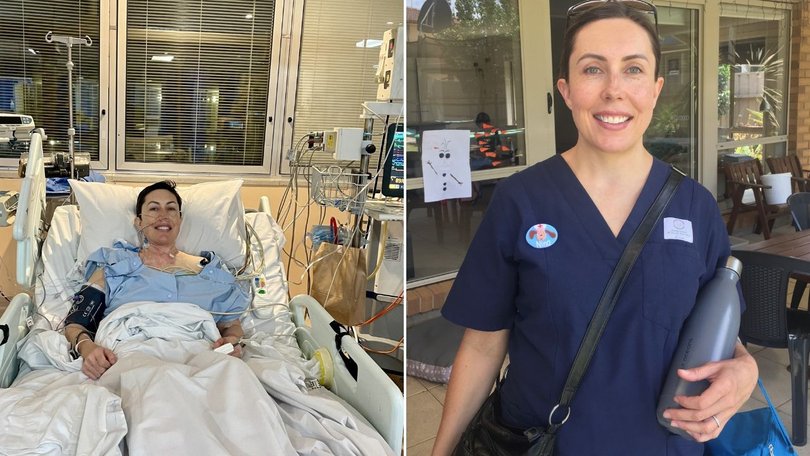
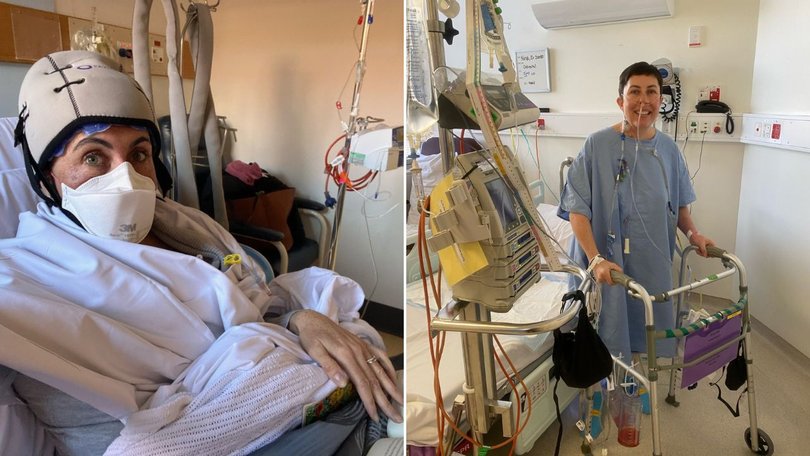
Battling the cancer head on, Di Santo said her medical team were optimistic about her recovery.
But sadly, the cancer returned and is now stage four.
“My best hope now is to keep it under control for as long as possible,” Di Santo said.
“My ongoing treatment has included two major abdominal surgeries to remove many of my internal organs and I am coming up to my 50th cycle of chemotherapy.
The treatment and surgeries have left me with a multitude of health problems including a colostomy bag, surgical menopause and numbness in my hands and feet.”
Di Santo told 7NEWS.com.au that she and her husband have tried to keep their life as normal as possible, with difficult conversations likely to come.
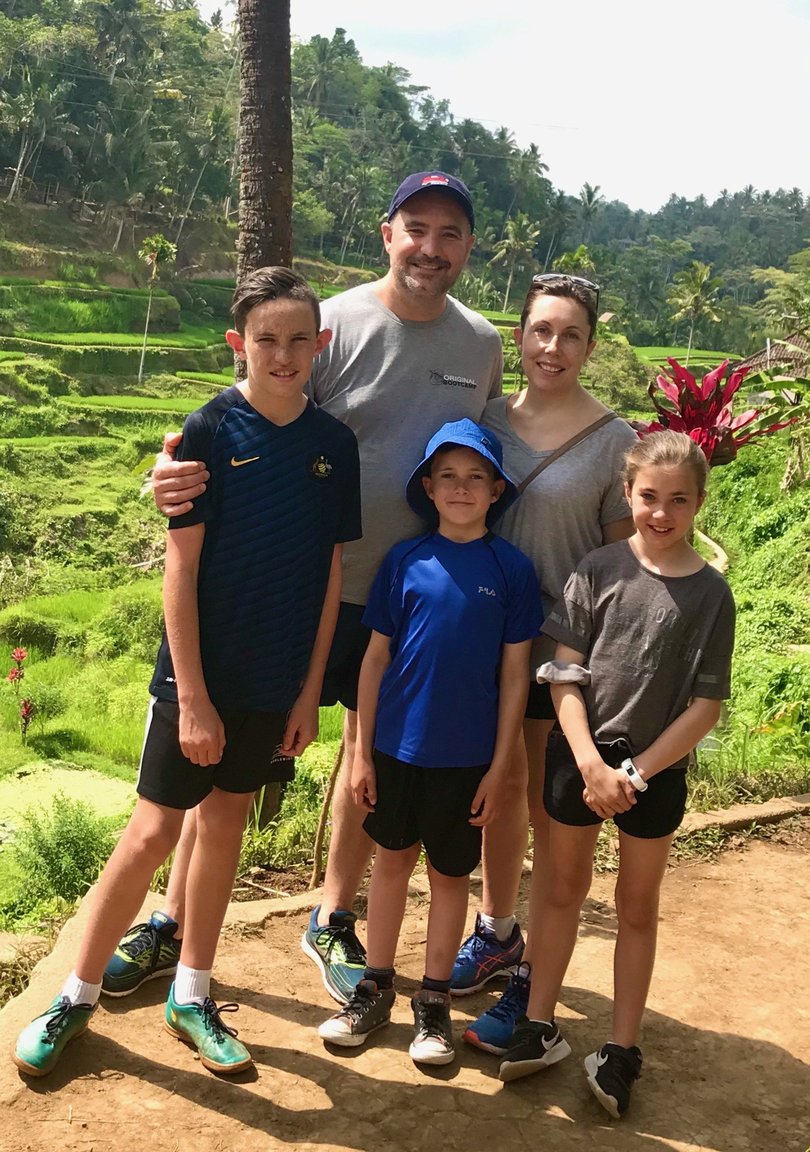
She said watching other bowel cancer patients, who were also her friends, die from the disease was “heartbreaking”.
“My husband has had to care for me when I have been recovering from surgery and when I have chemo. My kids have had to see me extremely unwell and in pain and we are constantly trying to keep away from infections,” she said.
“We have had some difficult conversations — but to be honest the worst are probably yet to come.
“I’ve lost so many friends along the way who I have met through the bowel cancer community and seen them say goodbye to their loved ones way too soon. It is heartbreaking.”
Di Santo is speaking out ahead of Bowel Cancer Awareness month in June, which South Australian-made toilet paper brand Kleenex is using to team up with Bowel Cancer Australia to raise awareness about one of Australia’s deadliest cancer.
Kleenex rolls will now encourage millions of Aussies to break the taboo and “check their poo” for bowel cancer symptoms.
For those who may not know what to look for, poocheck.com.au has been launched to help educate and raise awareness of bowel cancer symptoms and encourage people to take action.
Di Santo told 7NEWS.com.au she wished she knew what the symptoms were earlier.
“I wish I knew the signs and symptoms. I would’ve pushed harder earlier if I’d known that what I was experiencing was not normal and that it is not an old man’s disease,” she said.
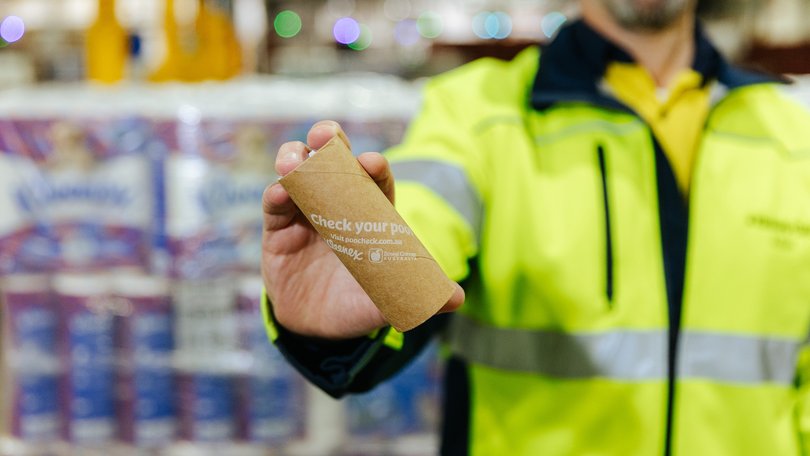
Adam Carpenter, a mill manager at Kimberly-Clark Australia (parent group of Kleenex), said he was very supportive of the campaign to help spread awareness of bowel cancer.
“We’re incredibly proud to support the team at Bowel Cancer Australia, using our Kleenex loo rolls to help address some of the bathroom blind spots when it comes to bowel cancer symptom awareness,” he said.
“Thousands of Aussies already trust Kleenex in the bathroom — and this crucial initiative transforms the humble loo roll into a bowel cancer awareness game-changer that helps Aussies to break the poo taboo.
“This is a natural step and partnership for Kleenex, and we hope it contributes to driving awareness, particularly as we head into Bowel Cancer Awareness Month this June.”
Australians are also reminded that not everyone will experiences symptoms, particularly in the early stages of bowel cancer.
Di Santotold 7NEWS.com.au it was time to get past the taboo.
“Check your poo. Be aware that any blood in your poo is not normal,” she said.
“It might just be haemorrhoids, but the only sure-fire way to know is via a colonoscopy.
“And, the bonus is, if it is polyps or early-stage bowel cancer, then it can be stopped in its tracks — early detection is key.
“With low iron, so many woman I know have this and it is never fully investigated. Please push until the cause is found.
“Changes to bowel habit, constipation to diarrhea or vice-versa, an urge to go but unable to, skinny “ribbon-like” poo, all needs to be investigated.”
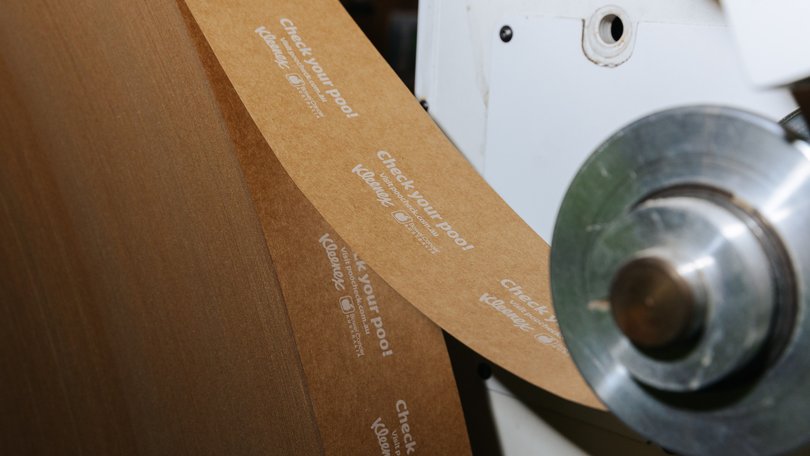
Bowel cancer is the fourth most common type of newly diagnosed cancer and the second deadliest in Australia.
Nearly 15,000 Australians are told every year they have bowel cancer, with just over 5,000 people per year losing their lives to it.
Common symptoms can include:
- Blood in your poo or rectal bleeding
- Bright red or very dark blood should never be ignored
- A recent, persistent change in bowel habit such as looser, more diarrhea-like poo, constipation, or going to the toilet more often, or trying to go — irregularity in someone whose bowel habits have previously been regular
- A change in shape or appearance of your poo
- For example, narrower poos than usual or mucus in poo
- Frequent gas pain, cramps
- A feeling of fullness or bloating in the bowel or rectum
- Unexplained anaemia
- A low red blood count causing tiredness, weakness or weight loss
- A feeling that the bowel has not emptied completely after going to the toilet
- Pain or a lump in the anus or rectum
- Abdominal pain or swelling
Those concerned about their health should consult with their medical practitioner.
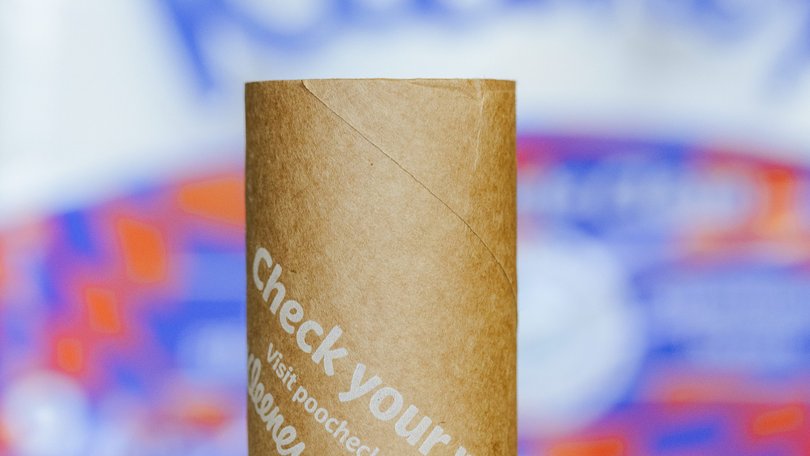
New research from PureProfile, which surveyed more than 1,000 Australians on their bathroom habits, also revealed a grim reality.
A majority admitted to never looking for any signs of issues, with nearly three-quarters (73.6 per cent) of respondents admitting they aren’t checking their poo for possible signs of bowel cancer.
Whilst almost half (43.2 per cent) are unable to correctly identify three key bowel cancer symptoms.
Two-in-five (38.6 per cent) respondents indicated they were uncomfortable talking about their bowel habit with their family, while more than a quarter (26.8 per cent) are uncomfortable talking about it with their doctor.
CEO of Bowel Cancer Australia, Julien Wiggins said the partnership with Kleenex will raise vital awareness for the cancer.
“We are delighted to be partnering with Kleenex for this innovative campaign, raising much-needed awareness around Australia’s second-deadliest cancer — bowel cancer,” he said.
Originally published on 7NEWS
